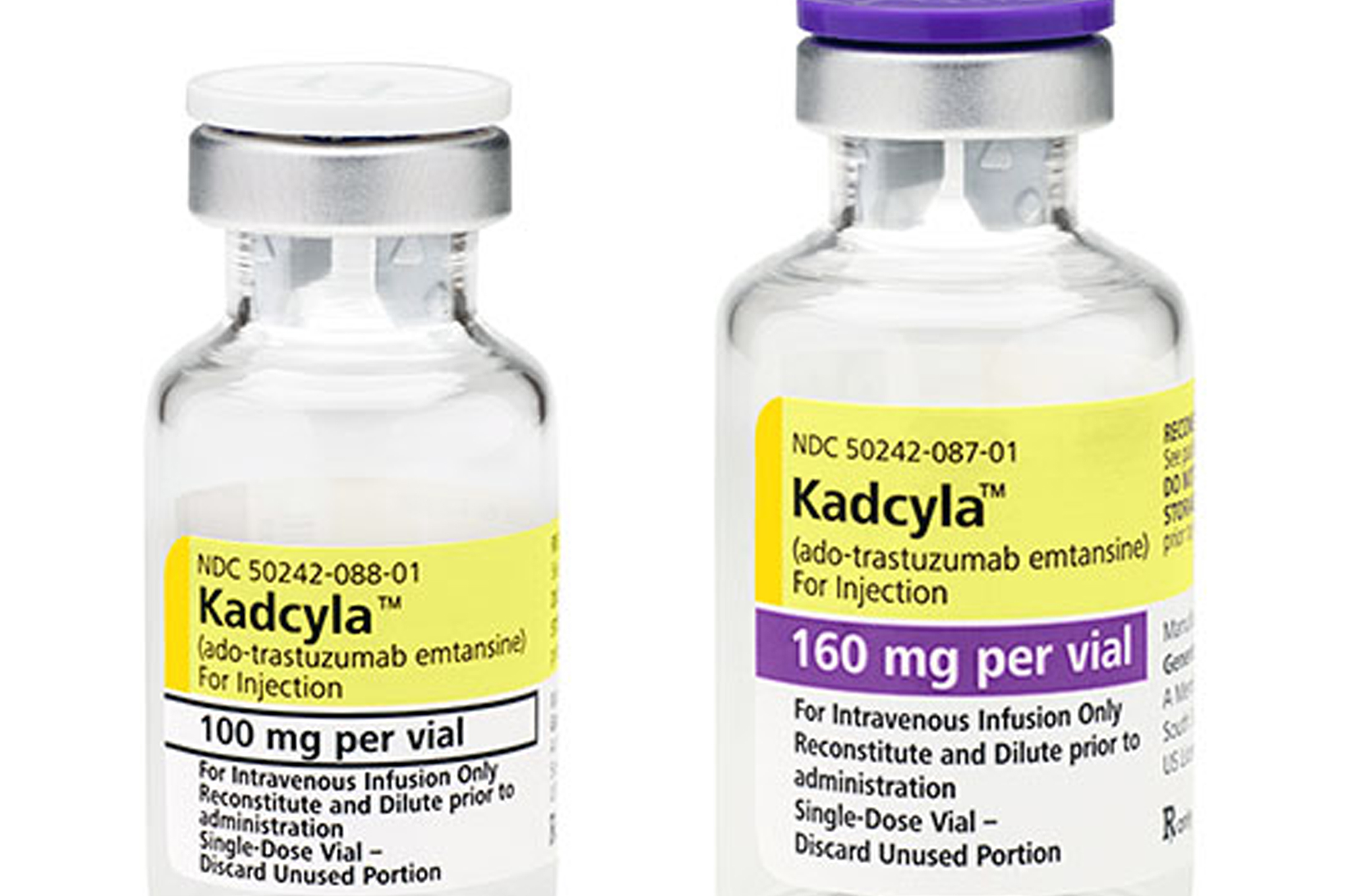Kadcyla finally gets OK after price cut and NICE concessions

Roche’s breast cancer drug Kadcyla is set for regular NHS funding in England after the company finally agreed a deal with NICE.
The row over Kadcyla has lasted three years, and has been one of the bitterest disputes between NICE, the pharma industry and patient groups.
The row has seen NICE accused of stubborn inflexibility, and Roche accused by NICE of setting an outrageously high price for the drug.
NICE first rejected Kadcyla back in 2014, saying its cost of around £91,000 per patient at full price was too high, and that a small discount was not enough for it to be considered cost effective.
Kadcyla is a next generation breast cancer drug, where a cancer-killing cytotoxic agent, emtansine has been added to the monoclonal antibody, trastuzumab – the active ingredient in Roche’s widely used Herceptin.
It is used in patients with HER2-positive disease previously treated with Herceptin and a taxane, separately or in combination.
Kadcyla has been available via the Cancer Drugs Fund, but this became massively overspent. The fund has now been changed to cover the cost of a select few drugs where NICE thinks interim funding could help with its cost-effectiveness calculations.
All the drugs funded under the old arrangements are being re-assessed, and as part of this process NICE, Roche, and the NHS England have managed to find arrangements that are acceptable to all parties.
In a statement, NICE said a confidential discount agreed with the Department of Health, and a new way of assessing its cost-effectiveness, had led to the recommendation.
Like many other companies who have been faced with the same permanent delisting, Roche will have made a deep discount to its list price to secure recommendation.
Some manufacturers are understood to have cut the cost of their cancer drugs by up to 50% of their list price.
NICE also made one notable concession, agreeing it was appropriate to compare Kadcyla with Herceptin plus the chemotherapy capecitabine, as this has become standard treatment for people with advanced breast cancer.
Based on the new arrangements, and applying end-of-life criteria that give NICE more flexibility, the drug now comes within a range considered to be a cost-effective use of NHS resources, NICE said.
Professor Carole Longson, director of the centre for health technology evaluation at NICE, said: “Since we started reassessing the drugs available through the Cancer Drugs Fund, companies have responded positively and shown that they can offer good deals when it comes to pricing. This has meant that we have been able to recommend these drugs for routine funding, which is clearly very good news for both patients and the NHS.”
NICE is appraising 24 drugs left over from the old CDF, and of the drugs considered so far, all 17 have been approved, with manufacturers offering discounts in each case.
Leading charity Breast Cancer Now launched an urgent petition to overturn the draft decision to end funding for Kadcyla last December, addressing it to both Sir Andrew Dillon, chief executive at NICE, and Richard Erwin, General Manager at Roche Products. In less than one month, the petition amassed over 115,000 signatures, and was delivered to both sides in January.
Baroness Delyth Morgan, chief executive of Breast Cancer Now said:
“This is exceptionally good news for so many breast cancer patients. We are absolutely delighted that tough negotiation and flexibility by NICE and NHS England, and the willingness of Roche to compromise on price, have ensured that thousands of women with incurable breast cancer will be given precious time to live."
She congratulated campaigners for their tireless efforts and added:
“This outcome also demonstrates vital signs of life for the drug appraisal system in this country. Today’s landmark decision bodes well for patients looking for reassurances that modern cancer treatments can get through to NHS patients more quickly and can bring transformational improvements in patient outcomes for the future."
She added however, that another Roche breast cancer drug, Perjeta, was also facing removal from NHS use via CDF delisting.
Wales and Northern Ireland usually follow NICE's guidance, while the Scottish Medicines Consortium earlier this year said Kadcyla should be funded by the country's devolved NHS.













